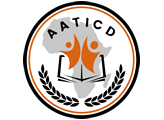Why Attend
The overall aim of this program is to enable participants to plan, manage and control project risks. Moreover, participants will be able to develop project risk management plans and identify project risks related to the project triple constraints; i.e.: scope, schedule, and resources. The program also aims at assisting participants in qualifying and quantifying project risks and developing appropriate risk responses. In line with the above; participants will also design and calculate key performance indicators for monitoring and controlling project risks.
Course Methodology
The program uses a mix of interactive techniques, such as brief presentations by the consultant and the participants and group exercises. The program also includes calculations and analysis of real case studies related to project risk management.
Course Objectives
By the end of the course, participants will be able to:
- Develop a project risk management plan
- Identify and predict project risks related to scope, schedule, and resources.
- Apply quantitative and qualitative risk assessments
- Plan strategies for negative and positive risks
- Devise metrics to monitor and control project risks
Target Audience
The target audience includes project risk managers, risk owners, project managers, members of the project office, project sponsors, functional managers, senior management and individuals interested in project risk management.
Target Competencies
- planning risks
- identifying risks
- assessing risks
- evaluating responses
- monitoring risks
- reviewing risks
Location:
South AfricaTraining Dates:
Each course starts every Monday of each week. Please book your training on a date that is a Monday.Course Duration:
Unit Standard:
NQF Level:
Number of Credits:
Course Fees
Note: Please fill in the online application form on the left or bottom if this page to receive a quotation with detailed pricing from AATICD.How to Apply:
To Apply Simply Fill in the Online Enquiries / Applications form on the Right Sidebar or Bottom of this website https://www.aaticd.co.zaNB:
When filling the online application form; please take note of your desired Training Month, Duration in Weeks and Training Session. This will give us the exact dates you will be attending your classes.Also note that Tuition Fees must be paid upfront on or before training start date. This is to ensure that all resources are made availabe for you before you start. You will not be allowed into training if fees are not paid and verified.
Also note that Tuition Fees Cancellations must be made 14 business working days before the starting date of training. This will allow us to do a 50% refund of the total amount paid. If cancellations are made thereafter note that no refund will be made to delegates.
Tuition Fees include teas and lunch as well as either a laptop or tablet which a delegate will take home free of charge.
Tuition Fee DOES NOT include Accommodation, Dinners and other Extra Curricular Activities or Incidentals. Delegates are expected to fund this on their own. AATICD will not be held accountable for any incidents to delegates.
In-House Trainings are also available for 3 or more delegates for any duration. Please consult with our Administration for such In-House training bookings.
Course Outline
- Planning risk management
- Risk components
- Project selection
- Risk preferences
- Project risk planning processes
- Risk management plan elements
- Identifying Project risks
- Identifying scope risks
- Identifying schedule risks
- Identifying resources risks
- Managing project risks
- Qualifying and quantifying project risks
- Quantitative and qualitative risk analysis
- Risk probability
- Risk impact
- Qualitative risk assessment
- Quantitative risk assessment
- Risk assessment matrices
- Quantifying risks using PERT analysis
- Common continuous risk distributions
- Expected monetary value (EMV) analysis
- Decision tree analysis
- Developing risk response strategies
- Categories of risk
- Risk management strategies
- Risk response planning
- Contingency planning
- Risk registers
- Monitoring and controlling project risks
- Implementing response plans
- Collecting project status
- Metrics and trend analysis
- Project reviews and risk reassessment




